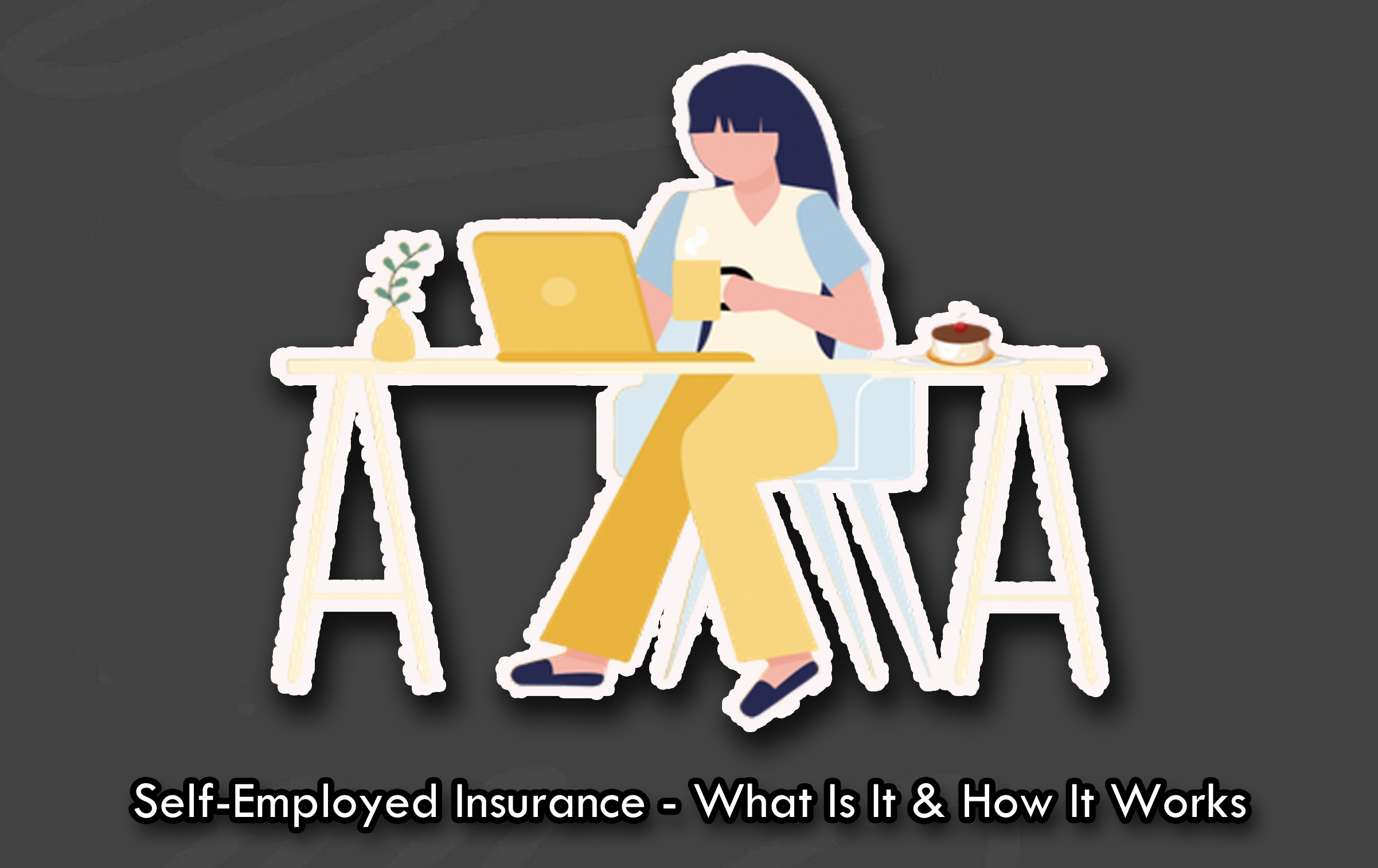
Self-Employed Insurance – Being your own boss comes with many freedoms, but it also means you’re responsible for securing your own insurance.

Without the safety net of employer-provided benefits, it’s important to explore different insurance options to safeguard yourself from unexpected medical costs, liability risks, and even loss of income.
However, in this blog post, we will be looking into all that should be known about Self Employed Insurance and why it is important. So, stick with us to be enlightened.
What Is Self-Employed Insurance?
Self-employed insurance refers to various types of insurance coverage designed for individuals who work for themselves, such as freelancers, independent contractors, or small business owners.
Unlike traditional employees who may receive insurance through their employers, self-employed individuals are responsible for securing their own protection.
This type of insurance can include health insurance, liability insurance (to protect against legal claims related to your business), disability insurance (to replace income if you become unable to work), and even life insurance.
It’s a necessary safety net to safeguard both personal and business interests in the absence of employer-provided benefits.
How Does Self-Employed Insurance Work?
Self-employed insurance works by providing individuals who work for themselves with access to various types of coverage usually offered through employers.
Since self-employed professionals don’t have access to group insurance plans, they must purchase coverage on their own.
This can include health insurance, liability insurance, disability insurance, and other forms of protection.
Health insurance can be bought through private insurers or government marketplaces, often with options for tax deductions to help offset costs.
While liability and disability insurance can protect you against business-related risks, such as lawsuits or loss of income due to illness or injury,.
Therefore, knowing your needs and choosing the right plans can help ensure you’re covered while maintaining your financial stability.
What Does Self-Employed Insurance Cover
A comprehensive self-employed insurance policy includes various types of small business coverage that protect against multiple risks.
These can range from lawsuits and income loss due to covered events to property damage affecting your business.
So, if you’re considering this insurance, it’s worth looking into a business owner’s policy (BOP), which combines essential coverage types into a single, cost-effective package.
A standard BOP includes the following:
Business Liability Insurance
This coverage protects you from claims involving bodily injury or property damage to others, excluding your employees.
For example, if a client slips and falls at your home office, business liability insurance can cover their medical expenses. It also includes legal fees, settlements, and court verdicts if you’re found liable for the incident.
Business Interruption Insurance
This type of insurance covers lost income if your business is forced to close temporarily due to a covered event, such as a fire. It can help cover lost earnings and the costs of relocating your operations while repairs are made or while you deal with damage to essential equipment or inventory.
Commercial Property Insurance
This protects your business property and assets from damage caused by events like storms or theft. Coverage includes your physical office space, computers, inventory, office supplies, and important business documents, helping you recover quickly from unexpected losses.
By combining these essential coverages in a BOP, self-employed individuals can enjoy peace of mind knowing their business is well protected.
What Does Self-Employed Insurance Not Cover
Even the most comprehensive self-employed insurance policies have exclusions. Here are some common examples of what may not be covered:
- Floods
- Damages caused by earthquakes.
- Damages by war or conflict.
- Business interruption or losses due to outbreaks of infectious diseases.
- Confiscation of property by the government.
- Damage due to radioactive fallout.
- Policies do not cover damage or losses resulting from intentional or fraudulent behavior.
- Wrongful Termination
Noting these exclusions helps ensure you seek out additional coverage where needed to fully protect your business from various risks.
How Much Does It Cost?
The cost of self-employed insurance can vary a lot. So, there are several factors that affect the price. However, one major factor is your occupation. Jobs with higher risks, like electricians or builders, usually cost more to insure than safer jobs, such as graphic designers.
Going further, your business location also affects the price. Different areas have different legal fees and risks, which can change how much you pay. For example, businesses in cities might face higher premiums than those in rural areas.
The types of coverage you choose will also impact your costs. More comprehensive coverage means higher premiums, so it’s important to find the right balance between protection and cost.
If you have a history of making claims, this can raise your rates. Additionally, factors like the size of your payroll and the value of your assets can influence your insurance costs.
So, to get the best deal, it’s essential to shop around and compare quotes from different insurance providers. This way, you can find coverage that meets your needs without spending too much.
Why Do I Need A Policy?
Self-employed insurance is crucial for several reasons. First, it protects your business from unexpected events like accidents, property damage, and lawsuits, helping you avoid significant financial losses.
Second, many clients prefer working with insured businesses, which enhances your credibility and trustworthiness.
Third, having health insurance is essential for covering your medical expenses as a self-employed individual.
Lastly, some states or industries require specific types of insurance, like liability coverage, to avoid legal issues.
In short, self-employed insurance safeguards your business, builds trust with clients, and ensures compliance with legal requirements.
Bottom Line
Self-employed insurance is essential for protecting your business from financial risks, enhancing your credibility with clients, covering your health needs, and complying with legal obligations. It’s a good investment for long-term success.